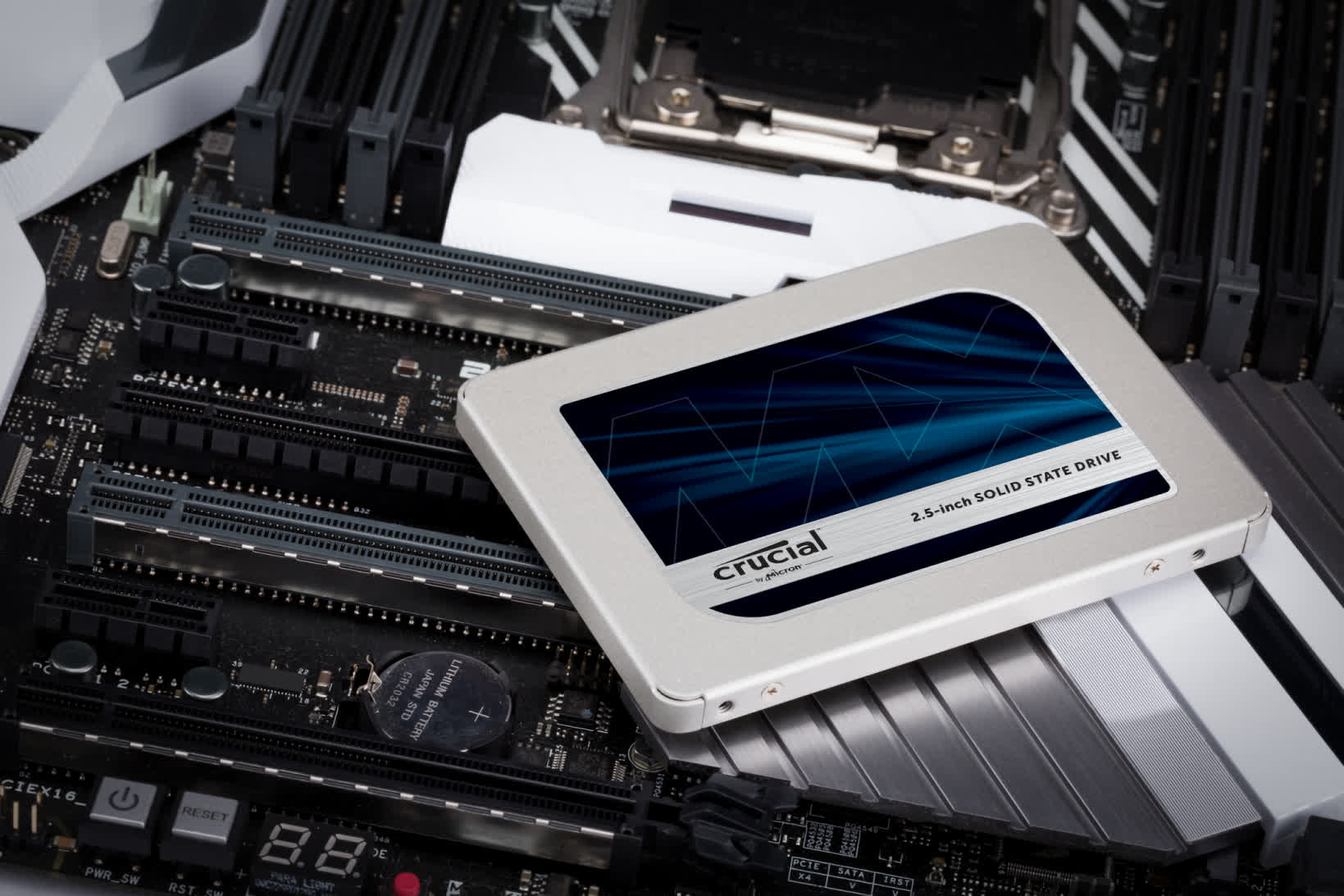In brief: Most hardware enthusiasts with a serious need for speed have since moved past SATA-based storage, but in certain circumstances, a large-capacity SATA SSD still might be the best option. And if you fall into that category, Crucial’s new drive could be of interest.

The latest addition to the MX500 family of SSDs from Crucial is a spacious 4TB SATA variant. According to Crucial’s specs sheet, the drive is rated at up to 560 MB/s sequential read speeds and 510 MB/s sequential writes, which is in the same range as competing drives and near the top of the interface's max bandwidth throughput of 600 MB/s.
SSD endurance is listed at 360 terabytes written (TBW); Tom’s Hardware claims the drive is rated for 1,000 TBW, but we can’t verify that (it’s possible that Crucial simply hasn’t fully updated its product page yet). Crucial does say the drive comes backed by a five-year limited warranty, however.
Related reading: The Best SSDs and PC Storage
If you need something in the same capacity ballpark with a bit more endurance, perhaps check out Kingston’s Data Center DC450R. You’ll sacrifice a bit of capacity (it only affords 3.84TB of space) and it’ll cost you an extra $210, but it is rated at 2,823 TBW and is also backed by a five-year warranty.
As mentioned, this is an internal SATA drive, meaning it sticks to the standard 2.5-inch (7mm) form factor. It does come with a 9.5mm adapter, should you need it.
The Crucial MX500 4TB is listed for $359.99 over on Crucial’s website.
https://www.techspot.com/news/91465-crucial-quietly-adds-4tb-sata-ssd-mx500-family.html